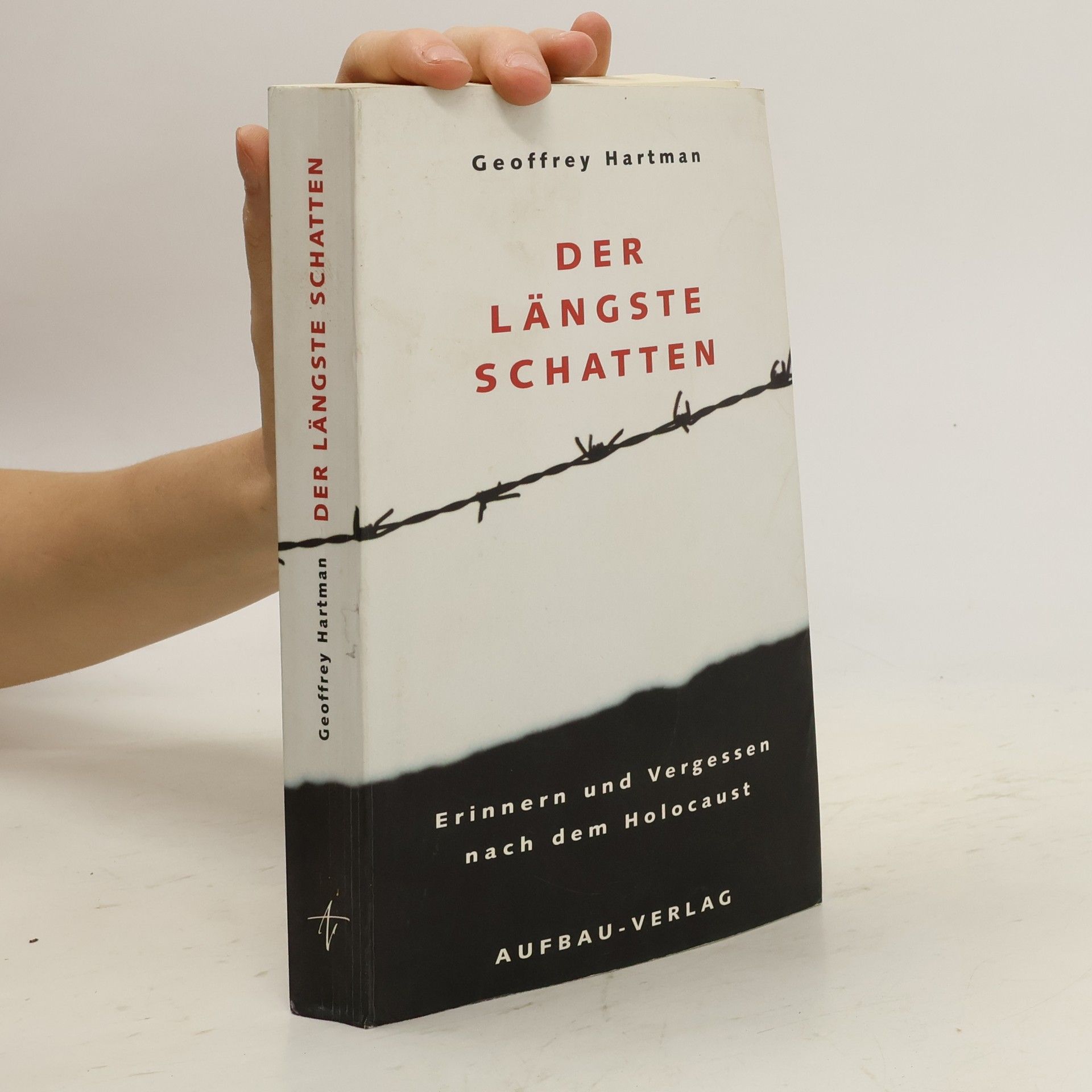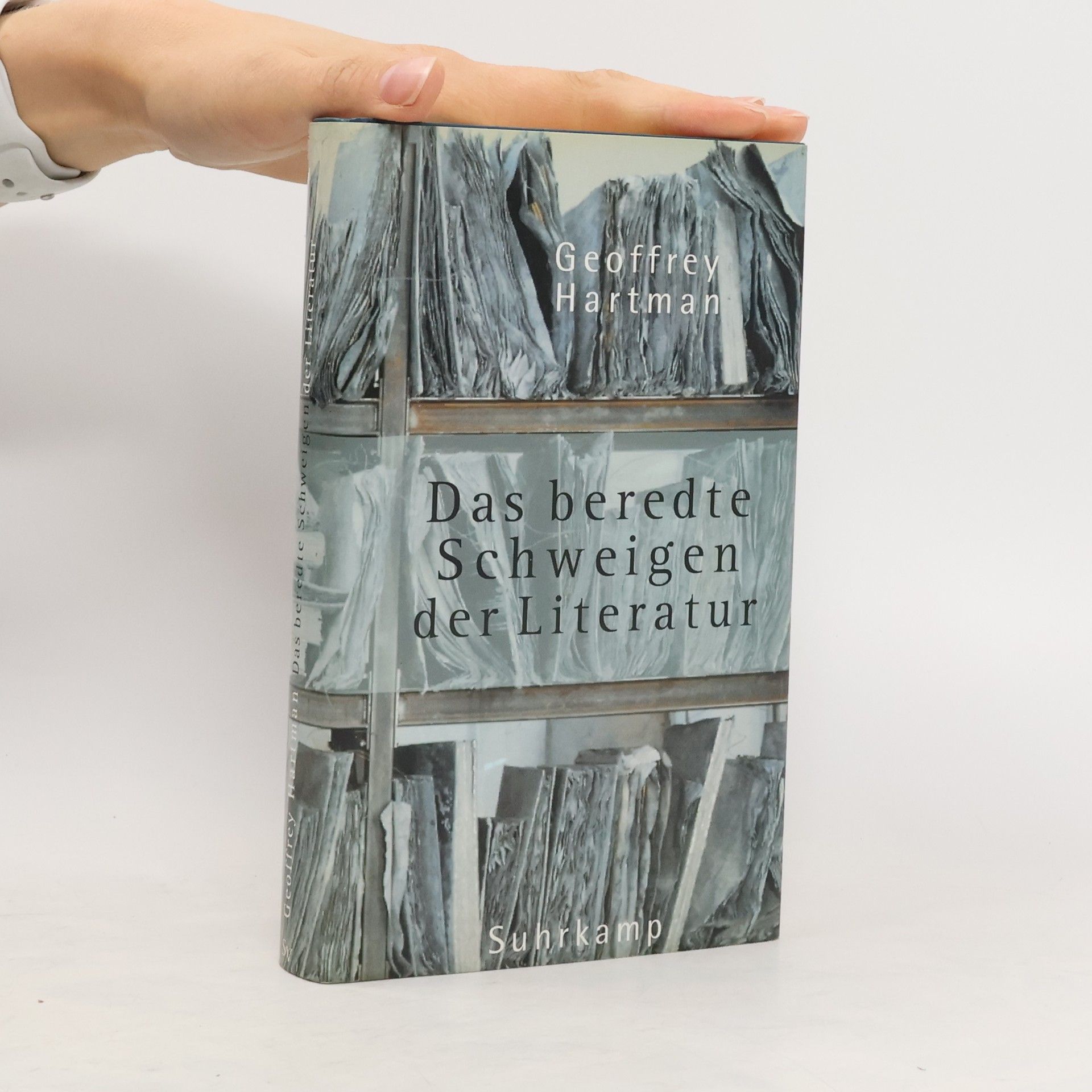Das beredte Schweigen der Literatur
- 297 stránek
- 11 hodin čtení
Frankfurt 2000, Pappband ,mit Schutzumschlag, 197 Seiten, 8°, schönes Exemplar,
Geoffrey H. Hartman byl literární kritik, jehož práce se zabývala romantickými básníky, posvátnými judaistickými texty, studiem holocaustu, dekonstrukcí a fungováním paměti. Byl považován za jednoho z předních světových literárních vědců a byl spojován s „Yaleskou školou“, skupinou literárních teoretiků známých svým přístupem zakořeněným v dekonstrukci. Hartman obhajoval názor, že kritika by měla stát na stejné úrovni jako literatura a sama o sobě sloužit jako forma literatury. Jeho práce se hluboce zabývala povahou traumatu, pamětí a svědectvím, což bylo ovlivněno jeho vlastní válečnou zkušeností.


Frankfurt 2000, Pappband ,mit Schutzumschlag, 197 Seiten, 8°, schönes Exemplar,